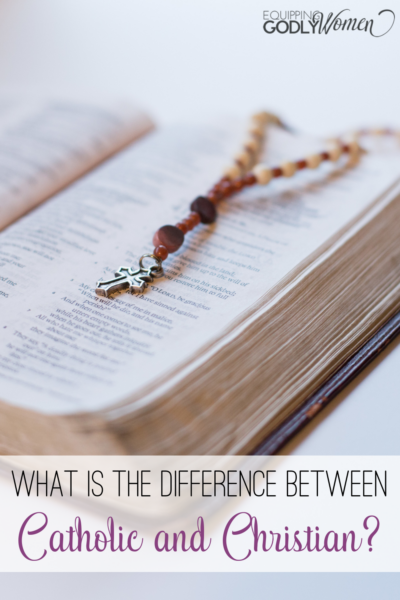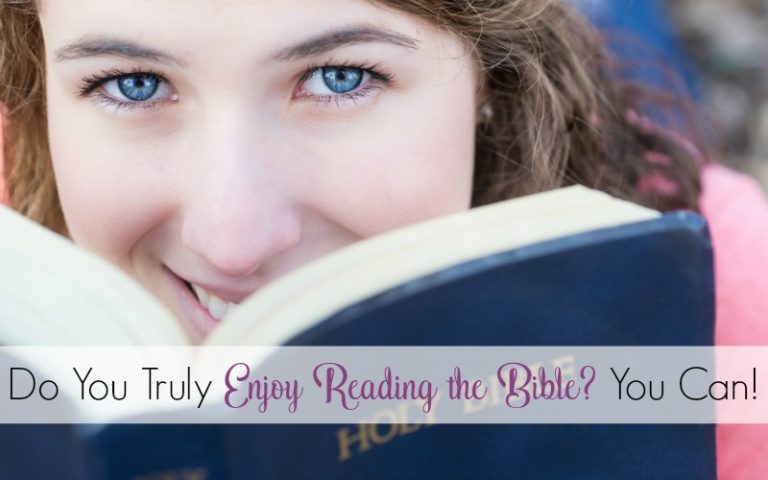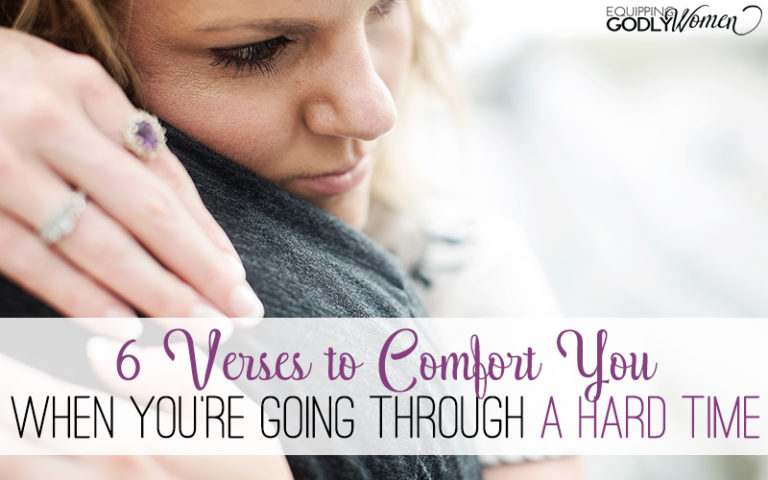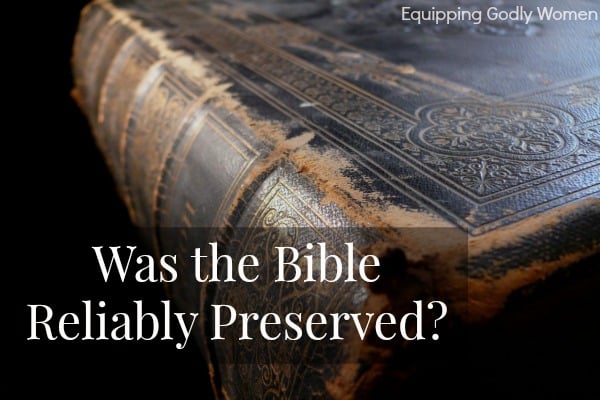What is the Difference Between Catholic and Christian? (Protestant)
 Have you ever wondered, “What is the difference between Catholic and Christian?”
Have you ever wondered, “What is the difference between Catholic and Christian?”
The short answer is: Catholics are Christians.
Christianity is made up of three main branches: the Catholic Church, the Eastern Orthodox Church, and the Protestant Church (which encompasses a wide variety of individual Christian denominations).
When most people ask, “What is the difference between Catholic and Christian?” (and this a common question!), what they really want to know is, “What is the difference between Catholic and Protestant?”
As someone who grew up in a Protestant (Baptist) church, graduated from a top-rated Midwestern Bible college, runs an interdenominational Christian website, and now regularly attends Catholic Mass with my family, this is a subject I’ve studied extensively for over a decade.
And this is what I’ve found…
In many ways, Catholics and Protestants really aren’t that different.
In fact, even though my husband is Catholic and I’m not, most of our beliefs about what’s right and wrong or how we should raise our kids line up pretty closely (or have nothing at all to do with the Catholicism vs. Protestantism debate).
Yet, just because we have a lot in common doesn’t mean there aren’t some pretty significant differences, too…
The biggest differences between Catholic and Christian (Protestant) Churches aren’t limited only to differences in belief. There are some pretty big cultural differences as well.
Some of the differences I was prepared for. Others I found surprising.
So, at the risk of oversimplifying (obviously, every individual church is different), here are the biggest differences between Catholic vs. Christian (Protestant) worship and belief that anyone considering attending either should be aware of.
Table of Contents
Origins of the Catholic, Eastern Orthodox, and Protestant Churches
Similarities Between Catholics and Christians
Biggest Differences Between Catholics and Christians
- The Existence of Papal Authority
- The Role of the Church (Authority)
- The Bible
- Salvation vs. Justification
- Sacraments
- Church Attendance
- The Virgin Mary
- Confession and the Forgiveness of Sins
- Saints
- Statues
- Clergy
- Holy Days
- Purgatory
- Divorce
Can You Be Christian but Not Catholic?
Can You Be Catholic but Not Christian?
Origins of the Catholic, Eastern Orthodox, and Protestant Churches
First, let’s start with a super quick overview of the three branches of Christianity (Roman Catholic, Eastern Orthodox, and Protestant) and how they each got their start, as this will help shed light on some of the differences.
The Jewish Origins of Christianity
Christianity began as an offshoot of Judaism after the death and resurrection of Jesus Christ.
While some Jews believed Jesus was the Son of God, others adamantly did not. Together, the Jews and Gentiles (non-Jews) who believed Jesus’s message of salvation were called “Christians” because they were followers of Christ. We can read about the earliest Christians in the biblical book of Acts.
From the beginning, Christians disagreed over their vastly different theological beliefs. Religious leaders held numerous councils (such as the Councils of Nicaea, Constantinople, and Ephesus) to try to work through their differences and solidify their doctrine.
Unfortunately, they weren’t always able to reach an agreement.
The Great Schism of 1054: Eastern vs. Western Catholic
In what later became known as the Great Schism or the Schism of 1054, the Eastern church (based in Constantinople) and the Western Church (based in Rome) split into the Eastern Orthodox and Roman Catholic branches of Christianity.
This split was caused by the dual excommunication of Pope Leo IX in the West and Patriarch Michael I in the East over theological differences, including the authority of the pope, the wording of the Nicene Creed, and whether or not priests should remain celibate.
The Protestant Reformation of 1517: Catholic vs. Protestant
The Roman Catholic church later split again in 1517, when former Catholic monk and priest Martin Luther formally challenged the Catholic Church for its sinful practices of selling indulgences and teaching a works-based salvation, among other issues.
While the document (called the Disputation on the Power of Indulgences or the 95 Theses) he nailed to the church door was meant to inspire debate, it ended up causing the Protestant Reformation, a religious movement in which many Christians broke off from the Roman Catholic church to start their own churches in protest. (Hence, why they are called “Protestants.”)
Today, the term “Protestant” encompasses hundreds of individual denominations, including Lutheran, Calvinist, Anglican, Methodist, Baptist, Pentecostal, Presbyterian, Episcopalian, Mennonite, United Church of Christ, and Non-Denominational Christian churches.
The Global Church Today
Of the three branches of Christianity (Roman Catholic, Eastern Orthodox, and Protestant), Roman Catholicism is by far the largest denomination of Christianity, with approximately 1.3 billion of the world’s 2.3 billion Christians self-identifying as Roman Catholic.
All three branches are very well established, but in this article, we’ll be looking specifically at the difference between Catholic and Protestant churches to answer the question, “What is the difference between Catholic and Christian (Protestant)?”
See Also: A Brief History of Christianity
Are Catholics Christian?
Catholics are Christians. Catholicism is one of the three major branches of Christianity: Roman Catholic, Eastern Orthodox, and Protestant.
Similarities Between Catholics and Christians (Protestants)
Because both Catholics and Protestants are Christians, they typically have a great deal in common. In fact, their Christian views on morality (what’s right and wrong) are often nearly identical, though the way they practice these beliefs may vary from church to church.
While there are many variations between individual Catholic and Protestant churches and their adherents, in general…
Both Catholic and Protestant Christians believe:
- In the holy Trinity (one God in three persons).
- God created the universe and everything in it (except Himself).
- No one created God. He just is. Always has been. Always will be.
- Jesus was born of the Virgin Mary.
- Jesus was born, lived, and died without sin.
- Jesus died to take the punishment for our sins.
- Jesus miraculously rose from the dead, allowing us to enjoy new life in him.
- Humans are, by nature, sinners in need of God’s grace.
- Jesus is coming back for us someday.
- Heaven and Hell are real places.
- Our choices on Earth determine where we’ll spend our eternity.
- Once we reach Heaven or Hell, we stay there permanently.
- We cannot earn or achieve eternal salvation through our good works.
- The Bible is the sacred, divinely inspired, infallible Word of God.
- We should live our lives in accordance with what the Bible says.
- Prayer allows us to directly communicate with God.
- While we don’t always get what we pray for, prayer is powerful.
- We are called to love, forgive, and pursue God above all else.
- We should share our time and talent through volunteering or donations.
- We should repent of sin and seek accountability from others.
Both Catholics and Protestants:
- Worship together in church and privately at home.
- Attend worship services that contain preaching, praying, singing, and reading God’s Word.
- Participate in sacraments such as baptism, communion, and marriage.
- Encourage their followers to make a personal commitment to Christ.
- Pray directly to God, Jesus, and/or the Holy Spirit.
- Recite the Lord’s Prayer (also known as the Our Father).
- Read and study the Bible (though their Bibles differ slightly).
- Follow a liturgical church calendar (Easter, Christmas, etc).
- Admire and seek to learn from other Christians (both past and current).
- Pray for themselves and those around them.
- Read Christian books, watch Christian shows and movies, attend Christian concerts and conferences, and listen to Christian music.
- Wear Christian clothing or jewelry or even get Christian tattoos.
- Decorate their homes with Christian decor, including crosses, Bible verses, and images of Jesus.
- Regularly meet with other believers for encouragement, education, and support.
- Seek to pass their faith on to their children through religious education, Christian media, modeling, and conversations at home.
- Share their faith with others in a variety of ways.
- And countless other similarities!
Over the years, I’ve gotten tons of questions about how my husband (who was raised Catholic) and I (who was raised Protestant) make our marriage work, but the truth is:
Despite some important differences between Catholics and Christians (Protestants), which we’ll cover next, most of what Catholics and Protestants believe and the way we practice our faith is pretty much the same — especially in the day-to-day!
Sure, we all have our own preferences, opinions, and different beliefs at times, but you’ll find that even between two members of the same denomination or even the same family. This isn’t necessarily a bad thing. (I think learning about and celebrating our differences is edifying!)
Biggest Differences Between Catholics and Christians (Protestants)
That being said, there are some very real differences between Catholics and Christians (Protestants) — both in terms of theological beliefs and cultural norms.
Here are some of the main ones:
1. The Existence of Papal Authority
Roman Catholics believe that Jesus established Apostle Peter as the first leader (Pope) of the church and that Peter’s authority has been handed down through an unbroken succession of (sometimes imperfect) popes ever since then.
They base this belief on Matthew 16:18-19, which says:
“And I tell you that you are Peter, and on this rock I will build my church, and the gates of Hades will not overcome it. I will give you the keys of the kingdom of heaven; whatever you bind on earth will be[c] bound in heaven, and whatever you loose on earth will be loosed in heaven.”
Catholics believe the Pope is the head of the global church and that he has the power to speak infallibly (or ex cathedra, meaning from the Chair of Peter) on behalf of God (i.e., binding and loosing, from the passage above).
That being said, they do NOT believe that all Popes are perfect or correct in all of their teachings. Catholics will readily admit there have been some terrible popes (but God can work through anyone).
There have only been two times throughout history when popes have officially proclaimed something under this rule:
- Pope Pius IX declared belief in the Immaculate Conception of Mary in 1854.
- Pope Pius XII declared belief in the Assumption of Mary in 1950.
By contrast, while many Protestants may consider a particular pope to be a good spiritual leader, they do not consider themselves under the pope’s authority. Rather, Protestants believe that Christians should be able to read the Bible and make decisions for themselves (possibly under the direction of the spiritual leaders they’ve chosen to submit to).
Many Protestants believe that Jesus was speaking metaphorically about the keys to the kingdom and/or that all Christians have the power to selectively bind and loose in Jesus’s name today.
See Also: What all Christians Should Know About Priests, the Pope, and Confession
2. The Role of the Church (Authority)
Similarly, the Roman Catholic Church seeks to maintain all the teachings of the apostles — both that were written down (in the Bible) and those that were passed down orally (through Tradition).
This makes sense, as the Catholic church was started before the invention of the printing press, when the average person (or church!) didn’t own a complete copy of the Bible. The first Christians had to simply follow the oral teachings of the missionary apostles (like Paul) at the time, because that was all they had.
Roman Catholic Churches typically take a “top-down” approach — doing their best to preserve and pass down their teachings through the Church throughout Church history.
Beyond the practical nature of this (since they didn’t own Bibles), Catholics base this practice on verses such as:
“If I am delayed, you will know how people ought to conduct themselves in God’s household, which is the church of the living God, the pillar and foundation of the truth.” –1 Timothy 3:15
“So then, brothers and sisters, stand firm and hold fast to the traditions that you were taught by us, either by word of mouth or by our letter.” — 2 Thessalonians 2:15 (NRSV)
“I will give you the keys of the kingdom of heaven; whatever you bind on earth will be bound in heaven, and whatever you loose on earth will be loosed in heaven.” –Matthew 16:19
“But when he, the Spirit of truth, comes, he will guide you into all the truth. He will not speak on his own; he will speak only what he hears, and he will tell you what is yet to come.” –John 16:13
(Catholics believe John 16:13 promises that God will guide the church so they cannot accidentally or purposefully abandon the truth.)
By contrast, some Protestants outright reject “Tradition” (which they claim is “man-made”) and instead believe in Sola Scriptura, which says the (written) Bible is all we need.
They take a “bottom-up” approach, in which every individual Christian is able to read and understand the Bible for themselves through the guidance of the Holy Spirit.
Catholic author Steve Ray summarizes the four tenants Protestants generally believe about the Bible this way:
- Scripture is the only binding authority.
- There is no official interpretation or interpreter.
- The Bible is easy to understand.
- Each individual can and should read and understand the Bible for himself.
Protestants believe church is important (even essential!) for growing in Christian faith within a body of believers.
However, if an individual Protestant disagrees with a particular pastor or denomination, they are welcome (and even encouraged) to quit that particular church and find another (or even start their own) with beliefs they like better.
See Also: Who Has the Ultimate Authority? A Biblical Look at Sola Scriptura
3. The Bible
Both Roman Catholics and Protestants believe the Bible is the divinely inspired and inerrant Word of God and includes the teachings of Jesus Christ. And it is useful for teaching, rebuking, correcting and training in righteousness (2 Timothy 3:16-17). However, Catholic Bibles are slightly different.
Roman Catholic Bibles contain 7 additional Old Testament books Protestant Bibles don’t have: Tobit, Judith, 1 and 2 Maccabees, Wisdom of Solomon, Baruch, and Ben Sira (also called Sirach or Ecclesiasticus) as well as minor additions to Esther and Daniel.
(Note: Eastern Orthodox Catholic Bibles contain even more books than these.)
Catholics refer to these books as the Deuterocanonical books, while Protestants refer to them as the Apocrypha.
It’s interesting to note that the Deuterocanonical books were included in almost every complete version of the Bible (including Martin Luther’s first German translation and the first version of the King James Bible) until as recently as 1825, even if only in an appendix or a separate section.
4. Salvation vs. Justification
Both Catholics and Protestants believe we cannot earn our salvation ourselves through our good works.
In fact, the Catholic Catechism expressly rejects this idea:
“Believing in Jesus Christ and in the One who sent him for our salvation is necessary for obtaining that salvation. ‘Since ‘without faith it is impossible to please [God]’ and to attain to the fellowship of his sons, therefore without faith no one has ever attained justification, nor will anyone obtain eternal life ‘but he who endures to the end.'” (CCC 161)
However, there are some subtle but important differences in the way Catholics and Protestants view salvation, justification, and sanctification. And again, I’m generalizing here since individual beliefs vary, especially among Protestants.
(Some, though not all) Protestants believe:
- We are saved through faith alone.
- This means our actions have zero effect on our salvation.
- We are officially “saved” as soon as we make a personal decision to follow Christ (often with the “Sinner’s Prayer”).
- We can know for sure that we are going to Heaven someday.
- Once we are “saved,” we can never lose that salvation. (This belief is less common.)
- We are righteous because God declares us righteous.
- When God looks at us, he doesn’t see our sins. He sees Jesus’s blood that covers our sins.
- Baptism is a symbol or public confession of the personal decision we’ve made to follow Christ.
The Catholic Church teaches:
- We are saved through faith, but it’s a living faith that naturally produces good works as a result.
- Baptism washes away original sin.
- Receiving Christ in the Eucharist forgives venial (minor) sins.
- Catholics should go to confession with a priest to be assured that their sins are officially forgiven. (This isn’t the ONLY way to have one’s sins forgiven, but it is an expected practice at least once a year.)
- If we aren’t able to complete the seven Catholic sacraments (baptism, Eucharist, confession, etc.), that’s okay. But if we intentionally choose to disobey God’s commands and commit a serious (mortal) sin, we are choosing to remain separated from God for eternity (i.e., not be saved).
- We aren’t officially “saved” now, but only at the final judgment.
- We can’t know for sure if we’re going to Heaven because we can’t presume what God will decide.
- God doesn’t just declare us righteous;8 He makes us righteous (through trials on Earth and purgatory after death).
Personally, I land somewhere in the middle of these two viewpoints.
I no longer believe that faith alone (with NO works to show for it) is enough for salvation, but I have a hard time believing that committing one mortal sin right before death is enough to wipe out every good deed or belief you held before then. (Even if I do believe the reverse.)
See Also:
5. Sacraments
The Catholic church recognizes seven official sacraments: Baptism, Confirmation, Eucharist (communion), Reconciliation (confession), the Anointing of the sick, Holy orders (ordination of Catholic priests and bishops), and marriage.
Catholics believe that when we willingly participate in these sacraments, God uses them to give us an extra measure of grace.
Protestants also participate in many of these rituals (or very similar ones), though their meaning can vary.
- Baptism: Catholics believe Baptism washes away original sin and typically baptize their babies shortly after birth. Protestants believe Baptism is an outward symbol of an inward conviction, and Protestants aren’t baptized until they are old enough to make the decision themselves. Both believe a person only needs to be baptized once.
See Also: Infant Baptism or Believer’s Baptism? Which is Correct?
- Confirmation: Confirmation is a Catholic practice in which Catholics (typically in 8th grade) publicly profess their faith, receive a greater in-dwelling of the Holy Spirit, and are officially welcomed as full members of the Catholic church. It typically involves reciting pre-written vows in front of the church during a special Mass. (Protestants do not have confirmation, but their baptisms serve the same purpose.)
- Eucharist (Communion): Catholics believe the bread and wine of the Eucharist are the real body and blood of Jesus and that, by partaking in the communion, Catholics have their venial (minor) sins forgiven. Catholics are required to receive the Eucharist at least once per year, but most receive it weekly during mass. They cannot receive if they have mortal (serious) sin on their conscience. Protestants, on the other hand, believe communion is merely a meaningful symbol of Jesus’s death and resurrection. Some take communion weekly, others monthly, but there are no official requirements.
See Also: Is the Eucharist Really Just a Symbol?
- Reconciliation (Confession): Catholics are required to confess any mortal (major) sins to a priest at least once a year. Some go more often. They believe you can confess straight to God, but that Jesus instituted confession, and he wants us to follow it because it’s good for us. They believe priests have the ability to forgive our sins on behalf of Christ, and we can know for sure that they are forgiven. Protestants, on the other hand, do believe confessing our sins one to another is helpful, but they don’t typically have any formal practices around it.
- Anointing of the Sick: Catholic priests anoint those who are seriously ill, injured, facing life-threatening surgery, or dying with oil and prayers. This is done to provide people with an additional measure of God’s grace — either to be healed or to be prepared before death. Protestants also commonly pray over people in these situations (and others), but there isn’t an official procedure or practice.
- Holy Orders: People wishing to become bishops, priests, nuns, brothers, sisters, deacons, etc., go through an official ceremony that involves prayer and the laying of hands on people. Catholics who choose these roles (called “vocations”) commit to them for life. Protestants wishing to take on leadership roles may go through a similar ceremony. However, Protestant pastors may step down or choose a new career path at any time for any reason.
- Marriage: Both Catholics and Protestants participate in marriage ceremonies (the requirements vary by church). However, Protestants typically emphasize the civil (legal) joining, while Catholics believe matrimony is a sacred sacrament that offers Catholics additional graces.
6. Church Attendance
Both Catholic and Protestant Christian church services contain similar elements (music, prayer, reading God’s Word, communion, and preaching, for example), but each has a slightly different focus.
The Catholic church service (called the “Mass”) centers around the Eucharist (communion). Typically, every Catholic church follows the same predetermined schedule of specific readings and prayers so Catholics around the world hear the same Scriptures read on the same days. The priest then preaches his own unique homily (sermon) on any of the required readings or a topic of his choice. Catholic Masses are typically held in local churches or cathedrals.
Weekly mass attendance is mandatory for Catholics. In fact, according to the Catholic church, missing a single weekly mass without reason is a serious moral sin, punishable by eternal separation from God (going to Hell). Thankfully, the Catholic church is generous in granting exceptions to those who are sick, disabled, or homebound, or those who are caring for the ill, young children, or the elderly, among others.
Protestant church readings typically center around the pastor’s sermon. Each pastor has the freedom to preach on whatever topic he (or she) wants, though there is usually a strong emphasis on the Bible. Pastors might choose to preach chronologically through Scripture or topically, and they may preach individual, stand-alone sermons or put together a month-long series on a particular topic or theme.
Protestant churches often follow a set weekly schedule or routine, but it’s developed by the individual churches themselves and is far less rigid and formal.
Also, in Protestant churches, young children often go to age-appropriate Sunday School classes during/instead of the main weekly service, while Catholic churches often expect and prefer their young children (including infants) to sit through the service with the adults.
7. The Virgin Mary
Catholics believe that Mary was sinless, that she was a virgin her entire life, that she was taken (body and soul) to Heaven, and that she has made appearances to mankind since her time on Earth. While the Bible does mention “Jesus’s brothers” (Mark 6:3, Mark 15:40), Catholics believe the word “brothers” would be better translated as “cousins.”
Protestants do believe that Mary was a virgin when she gave birth to Jesus, but they do not believe that she remained a virgin or was sinless. They believe she was a good woman but still a normal human woman.
See Also: What Do Catholics Really Believe About Mary, Saints and Statues?
8. Confession and the Forgiveness of Sins
Protestants believe all of their past sins are forgiven when they are “saved” — in other words, when they make a conscious decision to turn from sin, accept Jesus as their Savior, and become a Christian. After this, Protestants confess any and all sins straight to God through prayer for immediate forgiveness. No other action is required.
While Protestants acknowledge that the Bible does instruct Christians to “confess your sins to each other” (James 5:16), Protestants don’t have any formal practices around confession. As a result, confession (to others) isn’t a common practice.
Roman Catholics have formal guidelines around confession (to a priest), which is required.
According to Catholic doctrine, there is a distinction between Original sin, venial sin, and mortal sin:
- “Original sin” is the sinful nature we are all born with as a result of the Fall (Genesis 3). Catholics believe Original sin is forgiven and washed away upon baptism, which is why Catholics baptize their children as infants.
- “Venial sin” refers to any minor or unintentional sin that weakens but does not break one’s relationship with God. Examples of venial sins may include: telling small lies, harboring minor jealousy or comparison, drinking excessively, using foul language, or neglecting to read the Bible or pray regularly. Venial sin does not require confession but is forgiven upon taking the Eucharist.
- “Mortal sin” refers to any serious sin that someone commits knowingly and intentionally. Examples of mortal sins include: murder, sacrilege, blasphemy, deliberately missing Mass on Sundays or other holy days of obligation, and others. Roman Catholics believe that mortal sin severs one’s relationship with God, so if a person dies with mortal sin, they will likely be excluded from Heaven. (But Catholics wouldn’t presume to speak for God.) Mortal sin typically requires confession to a priest.
For this reason, Roman Catholics are required to confess his or her grave sins to a priest (attend confession) at least once per year.
During confession, Catholics typically confess all of their sins (mortal and venial) with little detail and pray specific prayers, such as the Act of Contrition. The priest then absolves (forgives) the sin and assigns some type of penance — a small deed the person must go do to make restitution for their sins, strengthen their relationship with God, and find true absolution.
It is important to note, however, that Catholics traditionally believe the Age of Reason is 7 years old. In other words, children younger than 7 are not old enough to fully understand sin and its consequences and aren’t held fully responsible.
See Also: What All Christians Should Know About Priests, the Pope and Confession
9. Saints
Protestants use the word “saints” fairly informally to refer to any Christian — past, present, or future. This is the same way the Bible uses the term in numerous verses, including Psalm 30:4, Matthew 27:52, Acts 9:13, Romans 1:7, 1 Corinthians 1:2, 1 Thessalonians 3:13, and Revelation 5:8.
Catholics make a distinction between “little s” saints (used the same way Protestants use the word) and “big S” Saints, which must meet certain requirements.
According to the United States Conference of Catholic Bishops,
“All Christians are called to be saints. Saints are persons in heaven (officially canonized or not), who lived heroically virtuous lives, offered their life for others, or were martyred for the faith, and who are worthy of imitation.”
In order to become a “Big S” saint, candidates must have lived an exemplary life and have either died for their faith or performed one or two verified miracles. A few well-known Saints include St. Peter, St. Paul, St. Patrick, St. Francis, St. Teresa, and Mary, mother of Jesus.
See Also: What Do Catholics REALLY Believe About Mary, Saints and Statues?
10. Statues
Catholic churches commonly have statues, while Protestant churches rarely do.
However, Catholics do not worship statues. Instead, they use them for decoration, remembrance, and instruction.
Remember: The Catholic church is older than the printing press. Before people could afford their own individual Bibles, they would learn Scripture through church Scripture reading, music, and decorations, including statues and stained glass images.
The use of statues is not idolatry.
In fact, God specifically commanded the Israelites to use statues in the tabernacle (where the high priest would meet with God Himself.)
“And make two cherubim out of hammered gold at the ends of the cover. Make one cherub on one end and the second cherub on the other; make the cherubim of one piece with the cover, at the two ends. The cherubim are to have their wings spread upward, overshadowing the cover with them. The cherubim are to face each other, looking toward the cover.” — Exodus 25:18-20
See Also: What Do Catholics REALLY Believe About Mary, Saints and Statues?
11. Clergy
Catholic churches have a strict hierarchy for clergy, while Protestant churches can vary wildly in structure and accountability.
The Pope is the head of the Roman Catholic Church, followed by the cardinals, archbishops, bishops, priests (also called pastors), and deacons. Each rank is under the guidance and accountability of the ranks above them.
Church members who are not clergy are called the laity (or parishioners, when referring to members of a specific church).
Catholics do believe in papal infallibility, but this does not mean that the Pope is perfect or always makes the right decision. Rather, the Pope is only infallible when he is intentionally making a declaration as the Pope. This has only happened twice in all Church history.
Furthermore, the Pope doesn’t have unlimited power. He is bound by sacred Scripture, Tradition, and common sense.
Only men are eligible to be priests within the Catholic Church.
See Also: What All Christians Should Know About Priests, the Pope and Confession.
Within Protestant circles, any person (male or female) can start a brand new church at any time for any reason with no outside accountability or oversight. You could start a new church in a building, a home, a garage, a school, or a bar, if you wanted to.
However, most Protestant churches do have some type of accountability in the form of a church board, elders, and/or deacons. Many churches also choose to become affiliated with a particular denomination, which offers additional structure and oversight.
The majority of Protestant churches do try to follow Scripture, though each church is free to interpret Scripture however they see fit.
Because of this, Protestant churches vary wildly in their beliefs and practices. For example, some churches allow female or LGBTQ+ pastors and church staff, while the majority do not.
12. Holy Days
Both Catholic and Protestant Christians observe various holy days, including Christmas, Easter, Palm Sunday, and Pentecost.
However, aside from the major holidays, Catholics typically observe far more holy days as part of their liturgical calendar.
Catholics are also far more likely to intentionally remember or celebrate the various holy days, whether that’s following Catholic Lent Fasting Rules, putting shoes out for St. Nicholas Day, receiving ashes on Ash Wednesday, or attending mass every Sunday and on various holy days/official holidays of obligation.
13. Purgatory
Protestants typically believe that once people make a decision to be a Christian, they go straight to Heaven when they die. Catholics believe that Christians go to purgatory first on their way to Heaven.
According to Catholic Answers,
“The Catechism of the Catholic Church defines purgatory as a “purification, so as to achieve the holiness necessary to enter the joy of heaven,” which is experienced by those “who die in God’s grace and friendship, but still imperfectly purified” (CCC 1030). It notes that “this final purification of the elect . . . is entirely different from the punishment of the damned” (CCC 1031).
The purification is necessary because, as Scripture teaches, nothing unclean will enter the presence of God in heaven (Rev. 21:27) and, while we may die with our mortal sins forgiven, there can still be many impurities in us…”
Both Catholics and Protestants believe that those who reject God during their time on Earth go to Hell when they die.
14. Divorce
While Protestants typically believe that marriage is designed to be between one man and one woman for life, they believe that there are many legitimate times when divorce is appropriate and moral. In cases where divorce is considered sinful, they believe God’s forgiveness covers the sin, and remarriage is acceptable.
Catholics, however, believe that an official Catholic church marriage is a sacrament and a lasting, binding spiritual contract for eternity. While Catholics also believe there are legitimate reasons for divorce or separation, they don’t believe you can break the spiritual contract.
For this reason, Catholics who are able to have their marriages annulled (a process that says the marriage was never valid) are able to remarry, while those who simply choose to divorce are typically unable to remarry and remain in good standing with the church.
See Also: Is Divorce Ever God’s Will?
Can You Be Christian but Not Catholic?
You can be Christian but not Catholic. Catholicism is only one of the three major branches of Christianity. Protestant and Eastern Orthodox Christians (as well as Christians who don’t take a denominational label) are Christian but not Catholic.
Can You Be Catholic But Not Christian?
You can be Catholic but not Christian. While Catholicism is a type of Christianity, it is possible for someone to simply take the Catholic label (typically through being baptized as an infant or going through the motions as an adult) without having a real, personal relationship with Jesus.
If someone was baptized Catholic but later walked away from the faith, they may still consider themselves a “non-practicing Catholic.”
See Also: Are you Really a Christian? Here’s How to Become One







This is a great learning tool for me! As a non-Catholic who's married to a Catholic I often have questions which my husband refuses to discuss. Thank you.
So glad this was helpful for you!
One wrong statement in this article was that Protestants don’t get confirmed. Maybe most of them don’t, I’m not sure, but I do know the Evengelical Lutheran church does as I was confirmed as a teen and so was my granddaughter. You may want to correct this information. Otherwise, I really enjoyed the information. Thank you.
Thank you for letting me know!
I appreciate the work you’ve done here, but ………
Protestants do baptize infants. There also is confirmation…and now I can’t remember what the 3rd comment was………
Thank you for letting me know!
An excellent source to learn the truth about Roman Catholicism is http://gotquestions.org.
Thanks for the recommendation!
Another resource to use is proclaimingthegospel.org. Mike Gendron does an excellent job of explaining Roman Catholicism and how it cannot be considered a Christian denomination. He was a R.C. for most of his life and really has a heart for the lost.